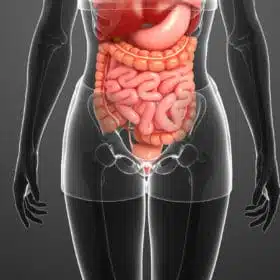If you constantly feel exhausted and listless and there's often not much left of your actually adventurous character, good advice is expensive. In principle, however, the cause is much more obvious than you might think, as these are usually the typical symptoms of a confused Hormone balance. To help you recognize that your passivity is actually due to a hormonal imbalance, we would like to introduce you to six classic symptoms.
What is the hormone balance?
Just like the blood circulation, the respiratory circulation and the energy circulation, the hormone balance is also one of the major circulatory systems in the human organism. This special circulatory system uses chemical substances, the hormones, to perform numerous important tasks, such as growth, tissue regeneration, maintaining digestion, controlling the day-night cycle and the body's reactions to external influences such as stress. Hormones are chemical messengers that are produced in organs such as the thyroid gland, the pancreas, the adrenal cortex or in certain areas of the brain.
When these hormones enter the bloodstream, they dock onto receptors designed for this purpose and transmit a signal to the organism to trigger a specific reaction or initiate a specific metabolic process. The strength of the respective reaction to the more than 40 currently known hormones depends on their concentration in the blood. If the blood concentration of one or more hormones deviates significantly from the normal values, this can sometimes lead to undesirable physical and psychological reactions. In this case, we speak of a disturbed hormone balance, which manifests itself in the following symptoms, depending on the hormone.
-
Symptom 1 Hormone balance is disturbed cravings
If you frequently experience extremely strong hunger that is mainly focused on sweets, this can be a clear symptom of hormonal dysfunction. In particular, the cravings are due to a malfunction of the pancreas, which is responsible for the production of the thyroid hormones thyroxine and triiodothyronine in the body. As these hormones are responsible for regulating the insulin content in the blood, an imbalance in the blood concentration causes your body to crave sugar, as the increased insulin secretion metabolizes the sugar already dissolved in the blood much faster than usual or directs it to its destination in the body.
- Symptom 2 Hormone balance is disturbed Hair loss
Thinning hair and irregular hair loss are often a completely normal phenomenon that frequently occurs during the menstrual cycle. However, if this condition lasts longer and receding hairlines develop, for example, the phenomenon could be a sign of a hormonal imbalance. This is usually caused by the hormone dihydrotestosterone, or DHT for short. This hormone is primarily responsible for body hair and is synthesized from the male sex hormone testosterone with the help of special enzymes. If the blood concentration of this hormone is too high, the hair roots react to it and often fall out. This is therefore the same process that causes many men to go bald with increasing age. Fortunately, androgenetic alopecia is much less pronounced in women. -
Symptom 3 Hormone balance is disturbed Weight gain
As both hunger and energy metabolism are regulated by the aforementioned hormone insulin, it stands to reason that maintaining a healthy body weight is also dependent on the hormone balance. While the cravings triggered by the increased insulin level are only a superficial symptom, the imbalance in the insulin balance has far more far-reaching consequences. If the insulin level is permanently too high, this inevitably leads to the development of resistance in the body. In plain language, this means that the increased sugar intake can no longer be metabolized properly. Instead, it settles in the body and leads to permanent and sometimes enormous weight gain. The main way to counteract this is by trying to reduce your sugar consumption, for example by avoiding sweets and choosing wholemeal instead of white flour products. -
Symptom 4 Hormone balance is disturbed Fatigue
Once again, this symptom is caused by a disturbance in the insulin balance, as the hormone can also cause tiredness, lethargy and fatigue in a corresponding blood concentration. This is due to the fact that the increased blood sugar level as a result of insulin resistance has a negative influence on the so-called wake-up hormone orexin. If the sugar concentration in the blood is too high, orexin synthesis is slowed down so that you feel constantly tired. -
Symptom 5 Hormone balance is disturbed Sleep disorders
Do you often suffer from insomnia or find it difficult to fall asleep at night? Then this could be due to an imbalance in the oestrogen balance, as the female sex hormone is also responsible for sleep regulation. However, this sets a vicious circle in motion, especially as a lack of sleep causes the body to become stressed, which manifests itself in the release of the stress hormone cortisol. This in turn further reduces the quality of sleep. However, oestrogen is not the only influencing factor, as low serotonin levels can also cause symptoms such as restlessness. Additional symptoms such as heavy sweating before going to bed, involuntary muscle twitching or even a clearly noticeable chill are particularly typical of this hormonal imbalance. -
Symptom 6 Hormone balance is disturbed Digestion
Our digestion is primarily influenced by the three hormones secretin, gastrin and cholecystokinin. In a normally functioning hormone balance, these hormones serve to stimulate the digestive process so that the ingested food can be broken down into macro and micronutrients so that they can reach their destination in the body via the bloodstream. If you suffer from slow digestion, irregular bowel movements or prolonged bloating, these can also be symptoms of a hormonal imbalance.
Conclusion
The number of possible symptoms is at least as varied as the number of different hormones and their interactions. The symptoms presented can therefore only be used as a guide and not for the purpose of a watertight self-diagnosis. At the latest when several of the symptoms mentioned persist over a longer period of time, you should consult your family doctor. A blood count carried out there will usually provide clarity so that you can initiate targeted countermeasures.
Reset your Body
Do something good for your body. Press reset and give yourself a fresh start! With our Reset your Body Bundle, your metabolism, immune system and digestive tract will be revitalized in a healthy way.
Reset your Body



